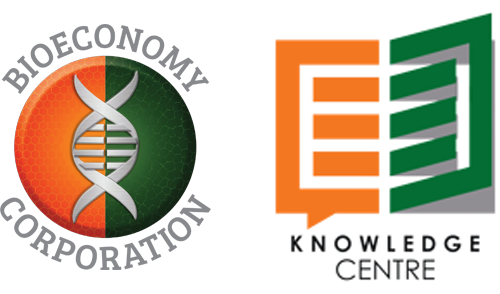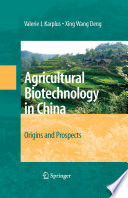Agricultural Biotechnology in China
| Series: | |
| Publisher: | Springer Science & Business Media |
| Subject: | Agricultural innovations |
| Authors: | Valerie J. Karplus , Xing Wang Deng |
| Pages: | 165 pages |
| Binding: | Hardcover |
| ISBN: | 9780387711386 |
| Call No: | S 494.5 B563 K18 2008 |
Scientists in China’s laboratories have developed hundreds of transgenic crops, but only one is insect-resistant cotton and planted widely on farms. This apparent paradox has inspired the writing of this book Agricultural Biotechnology in China: Origins and Prospects. Against the backdrop of ongoing global controversy over the safety and benefits of transgenic crops, this book focuses on two key questions: 1) What historical as well as recent economic, political and social developments account for China’s sizeable investment in research on transgenic crops and the apparent mismatch between laboratory and commercial activity?; and 2) What are the chances that transgenic crops will be introduced on a large scale in China, and if so, what are the potential benefits, drawbacks, and constraints associated with widespread adoption? These questions are particularly timely as China’s regulators may soon approve transgenic rice for commercial planting, making it the first food crop to be grown on a large scale in China. China’s investment in transgenic crops is driven as much by a broader science and technology development agenda as by the needs of its agricultural sector. Therefore, China’s policymakers can securely pursue the first goal while postponing adoption decisions, which are likely to depend on the technology’s greater global acceptance and the strength of regulatory oversight, extension mechanisms, and demonstrated need in China’s rural areas.

